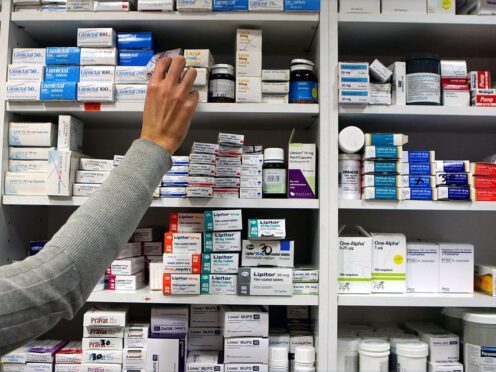
A number of new medicines, including two to treat cancer, have been approved for routine use on the NHS in Scotland.
On Monday, the Scottish Medicines Consortium (SMC) announced it had approved Opdualag, which contains nivolumab and relatlimab, to treat advanced skin cancer in patients aged 12 and older.
Pembrolizumab, sold under the brand name Keytruda, used together with chemotherapy was accepted as a first-line treatment for adults with HER2-negative advanced gastric or gastro-oesophageal junction cancer.
However, it was not recommended for those with HER2-positive disease when used together with chemotherapy and trastuzumab.
Voretigene neparvovec, sold as Luxturna, was accepted for the treatment of adults and children with a rare inherited eye condition called inherited retinal dystrophy.
The SMC chair said the organisation had heard about the “devastating and life-changing” impact of the increasing blindness caused by the condition.
Pegunigalsidase alfa, branded as Elfabrio, was accepted as a treatment for adults with Fabry disease, a rare inherited condition that can lead to kidney failure and heart problems.
Empagliflozin (brand name Jardiance) was accepted for the treatment of adults with chronic kidney disease, a long-term condition where the kidneys do not work as well as they should.
Follitropin delta, or Rekovelle, was accepted for ovarian stimulation in women having fertility treatments such as in vitro fertilisation (IVF) or intracytoplasmic sperm injection.
Additionally, an initial assessment report on birch bark extract, branded as Filsuvez, has been completed on its treatment of epidermolysis bullosa.
The rare skin condition makes the skin very fragile and causes severe blistering and scarring.
The SMC said the Scottish Government will confirm when it is available for prescription and further evidence on the drug’s use will be gathered.
SMC chair, Dr Scott Muir, said: “The committee is pleased to be able to accept these new medicines for use by NHS Scotland.
“Through the SMC patient and clinician engagement process, the committee heard about the devastating and life-changing impact of progressive vision loss caused by inherited retinal dystrophy.
“From the additional evidence provided by the company, the committee was satisfied that voretigene neparvovec has the potential to improve the lives of patients and their families and has now been accepted for routine use by SMC.
“The committee was not able to accept pembrolizumab for advanced gastric or gastro-oesophageal junction cancer in patients with HER2-negative and HER2- positive disease as the evidence provided by the company for pembrolizumab when used to treat HER2-positive disease was not strong enough.
“We would welcome a resubmission addressing the uncertainties that we have raised”.

Enjoy the convenience of having The Sunday Post delivered as a digital ePaper straight to your smartphone, tablet or computer.
Subscribe for only £5.49 a month and enjoy all the benefits of the printed paper as a digital replica.
Subscribe